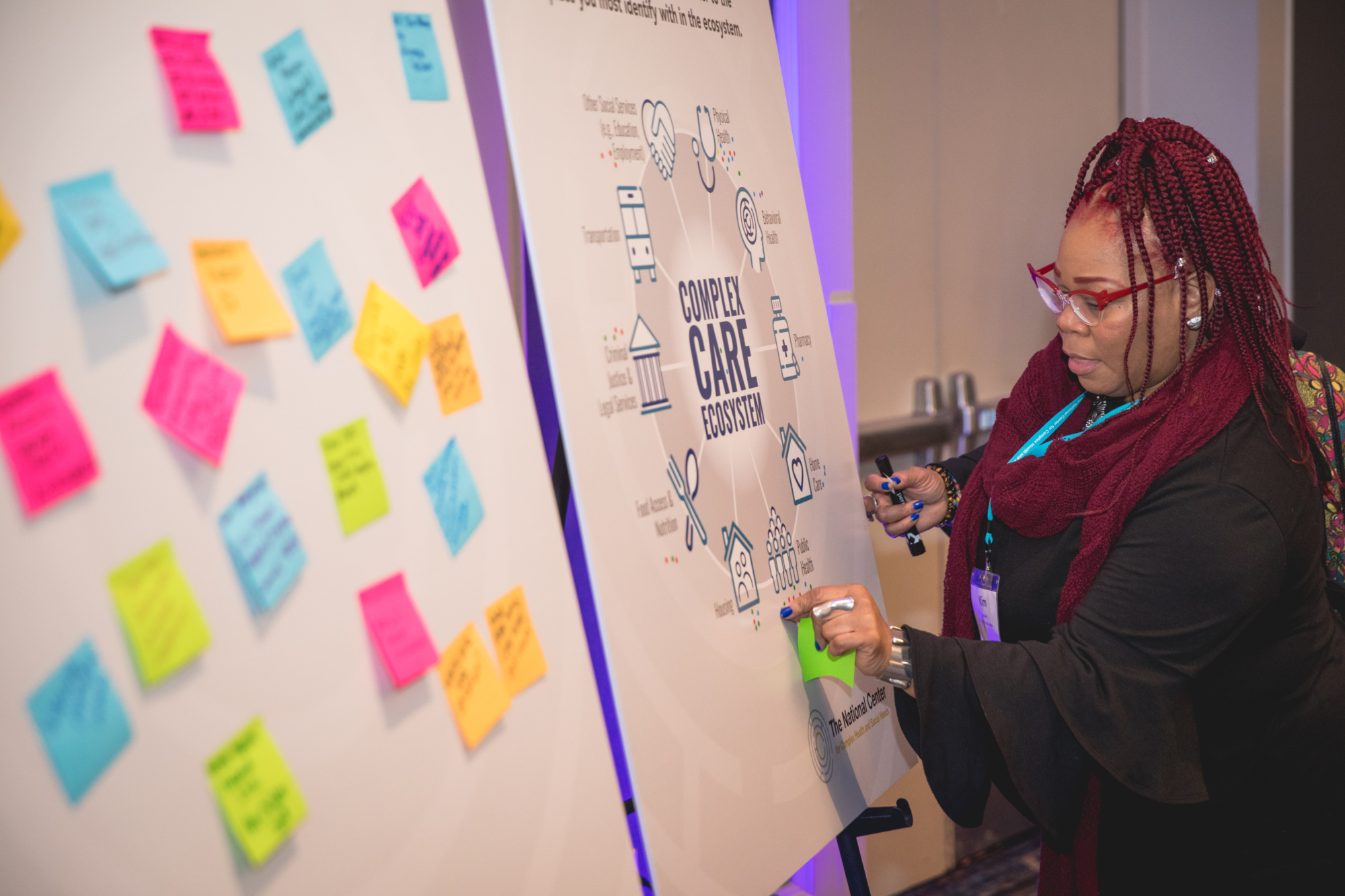Using social needs screening and patient feedback for complex care
Care management & redesign Community & consumer engagement SDOH & health equity
Building the complex care field Strengthening ecosystems of care Behavioral health & addiction Food insecurity Homelessness & housing Legal & criminal justice SDOH & health equity Transportation
Health-related social needs (HRSN) play a significant role in determining a person’s overall well-being. These needs encompass non-medical factors that affect health outcomes, such as access to housing, nutritious food, transportation, and social support. Addressing these social needs is essential to achieve health equity and improve outcomes for individuals and communities.
The Camden Coalition is leading the charge in addressing health-related social needs through innovative, relationship-based approaches. By focusing on trust-building and longitudinal care, our organization is making a measurable difference in the lives of those with the most complex needs.
HRSN refers to the underlying social determinants of health (SDOH) that influence a person’s ability to access and benefit from healthcare services. These social determinants, also including economic stability, education, and neighborhood conditions, account for up to 55% of health outcomes, according to the National Institutes of Health (NIH).
Social needs are the day-to-day requirements individuals must meet to maintain physical, emotional, and mental well-being. Examples of social needs include access to affordable and stable housing, reliable transportation, employment, support networks for mental and emotional health, and opportunities for social connection. Addressing these needs can improve health outcomes and reduce healthcare costs. While the healthcare community has varied its use of the terms HRSN, SDOH, and “social factors of health” intermittently over the last decade, the Camden Coalition identifies all such cases as complex health and social needs.
Longitudinal care is an effective approach to improving health outcomes. It is defined as a patient-centered, integrated healthcare model focused on bidirectional patient-provider relationships. A growing body of research highlights the value of longitudinal approaches in addressing health-related social needs. Unlike one-time interventions, longitudinal care emphasizes ongoing support and relationship-building. This method fosters trust between healthcare providers and patients, which is critical for addressing complex social and medical challenges.
The Camden Coalition’s work exemplifies this approach through its model of authentic healing relationships. These relationships are designed to provide consistent, patient-centered care over time, helping individuals navigate both their health and social challenges effectively.
The Camden Coalition has become a national leader in addressing HRSN. Our work focuses on:
Building trust through authentic relationships
The Camden Coalition’ centers authentic healing relationships in all our care models, which emphasizes trust and patient-centered care. This approach has been shown to improve engagement and health outcomes for patients with complex needs. Read more about this approach here.
Screening and navigation for HRSN
By screening patients for HRSN, Camden Coalition has identified critical barriers to care. Once these barriers are identified, navigators connect patients to community resources, ensuring their needs are met holistically. Insights from our national webinar on HRSN screening and navigation conducted in South Jersey during the Accountable Health Communities (AHC) Model evaluation by the Center for Medicare & Medicaid Innovation (CMMI) provide further guidance.
Advocating for systemic change
Through our leadership and research, the Camden Coalition has proven the value of and advocated for policies that integrate HRSN and SDOH interventions into healthcare practices and systems. Our recent piece in Health Affairs — written by CEO and President Kathleen Noonan and Penn Leonard Davis Institute Senior Fellow Mary Naylor — outlines a scalable model for community-based support.
Healthcare providers increasingly use screening tools to identify health-related social needs. Camden Coalition’s data-driven approach ensures that screenings capture critical information, enabling timely interventions.
Collaborating with local organizations is essential for addressing social needs. For example, partnerships with food banks, housing authorities, and transportation services allow healthcare systems to extend their reach and impact.
Systemic change requires advocating for policies that integrate HRSN into the healthcare framework. Camden Coalition’s work in this area serves as a model for other organizations.
Addressing HRSN goes beyond meeting immediate needs. Camden Coalition’s relationship-based care model has proven effective in helping patients with complex medical and social challenges. Their success underscores the importance of trust in healthcare delivery.
Camden Coalition’s work demonstrates that addressing HRSN requires a multifaceted approach. By building authentic relationships, implementing effective screening processes, and advocating for systemic change, we are paving the way for a healthier, more equitable future.
The Camden Coalition is a multidisciplinary, community-based nonprofit working to improve care for people with complex health and social needs in the city of Camden, across New Jersey, and around the country. We develop and test care management models and redesign systems in partnership with consumers, community members, health systems, community-based organizations, government agencies, payers, and more, with the goal of achieving person-centered, equitable care.
As one of New Jersey’s four Regional Health Hubs, the Camden Coalition works with regional partners, New Jersey’s Medicaid office, and other state agencies to expand data-sharing and collaboration between organizations so that patients across South Jersey experience seamless, whole-person care. You can visit the Camden Coalition Learning Center to register for on-demand, curated courses that provide skills and resources to develop and grow complex care programs.
You can also register for our free monthly newsletter to receive updates on our local, state, and national work.
Care management & redesign Community & consumer engagement SDOH & health equity
Care management & redesign Data analysis & integration Behavioral health & addiction Measurement & evaluation Quality improvement
Care management & redesign Data analysis & integration Strengthening ecosystems of care





